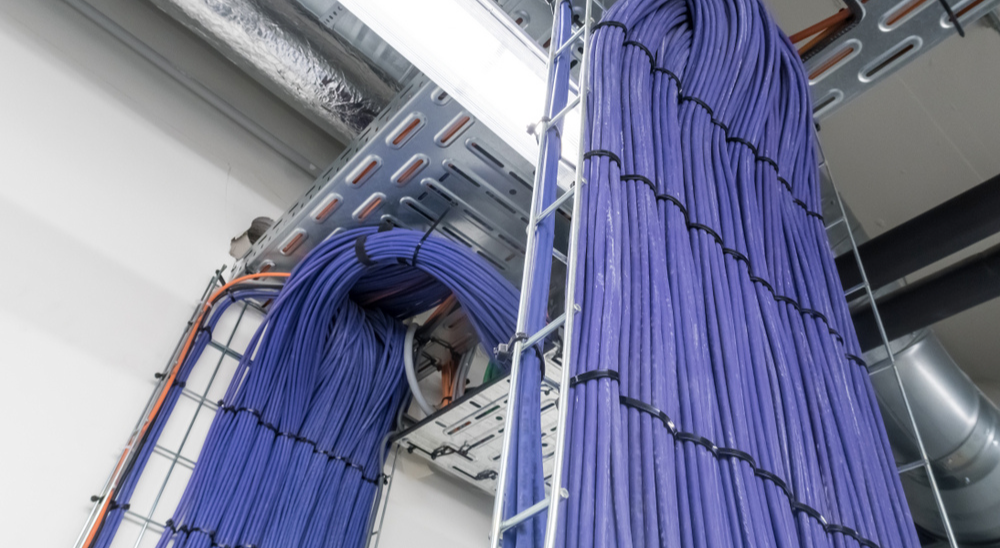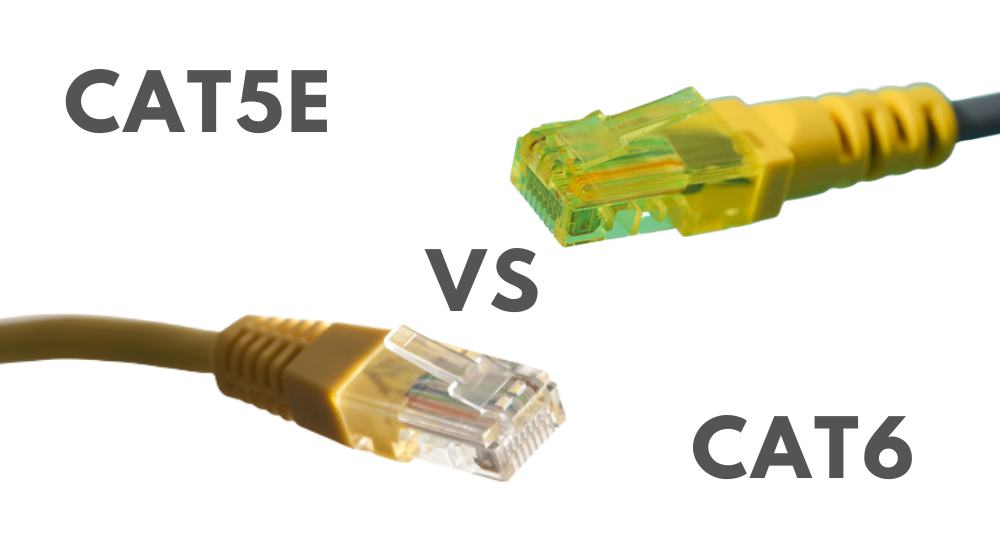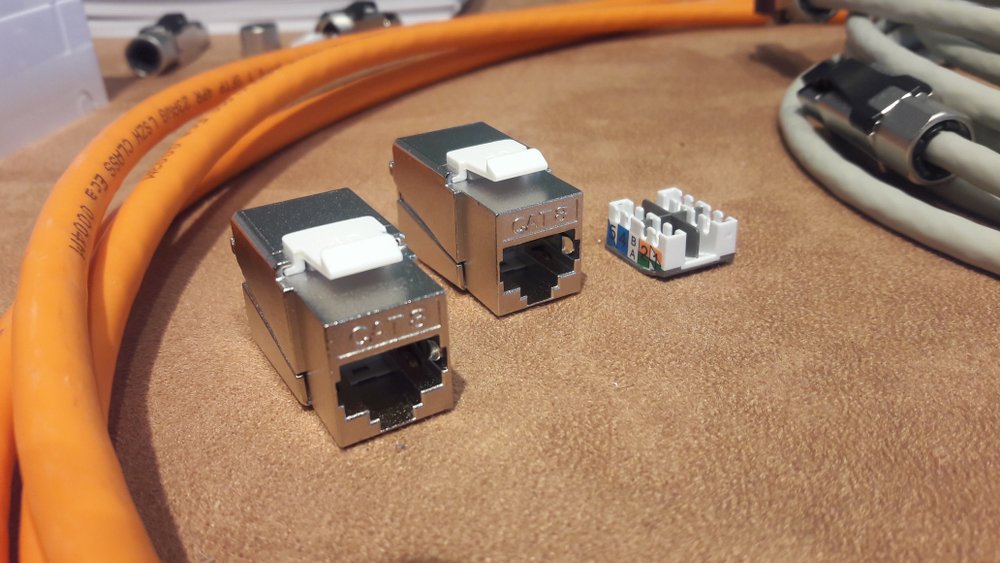How to Choose Keystone Jack?
Posted : 11-April-2022
Keystone jacks play a pivotal role in networking setups, offering versatility, reliability, and performance. Understanding how to choose the right Keystone Jack ensures seamless connectivity and optimized network performance. In this guide, we’ll delve into the key factors to consider when selecting Keystone Jacks for your networking needs.
Introduction to Keystone Jacks
Keystone jacks are modular connectors used in networking setups to provide connectivity for various cables. They are commonly used in wall plates, patch panels, and surface mount boxes, offering a convenient and customizable solution for networking infrastructure.
Types of Keystone Jacks
When choosing Keystone Jacks, it’s essential to consider the type that best suits your requirements. There are two primary types: unshielded and shielded Keystone Jacks. Additionally, Keystone Jacks come in various category types, including CAT5e bulk cables, CAT6 bulk cables, CAT6a bulk cables, CAT7 bulk cables, and more, each designed to support specific networking standards and speeds.
Considerations Before Choosing Keystone Jacks
Before selecting Keystone Jacks, assessing compatibility with cables and wall plates is crucial. Consider the specific environment and application requirements to ensure the chosen Keystone Jacks meet your networking needs effectively.
Quality and Performance
Investing in high-quality Keystone Jacks is paramount to ensure optimal network performance and reliability. Consider factors such as material quality, construction, and performance specifications to ensure seamless connectivity and minimal signal loss.
Durability and Reliability
Durability and reliability are essential aspects to consider when choosing Keystone Jacks. Opt for Keystone Jacks constructed from robust materials that can withstand environmental factors and frequent use, ensuring long-term reliability.
Ease of Installation
Choose Keystone Jacks which offers a simple installation process. Consider the tools required and the ease of setup to streamline the installation process and minimize downtime.
Cost Considerations
While cost is a significant factor, it’s essential to balance quality and affordability when choosing Keystone Jacks. Consider the long-term cost benefits of investing in high-quality Keystone Jacks that offer reliable performance and durability.
Brand Reputation and Reviews
Research reputable brands are known for their quality Keystone Jacks and excellent customer support. Additionally, consider customer reviews and feedback to gauge the reliability and performance of the Keystone Jacks.
Future-Proofing Your Network
Anticipate future technology advancements and choose Keystone Jacks that can adapt to evolving networking standards and requirements. Opt for versatile Keystone Jacks that can accommodate future upgrades and expansions.
Compatibility with Existing Infrastructure
Ensure compatibility with existing networking components, such as cables, connectors, and wall plates. Assess compatibility to avoid compatibility issues and streamline the integration of Keystone Jacks into your network infrastructure.
Certifications and Standards Compliance
Choose Keystone Jacks that comply with industry standards and certifications to ensure reliability, performance, and compatibility. Look for certifications such as UL, ETL, and ANSI/TIA standards for assurance of quality and compliance.
Customer Support and Warranty
Select Keystone Jacks from manufacturers that offer reliable customer support and warranty coverage. A robust warranty ensures peace of mind and timely assistance in case of any issues or concerns.
Aesthetics and Design
Consider the aesthetics and design of Keystone Jacks, especially if they will be visible in your networking setup. Choose options that complement the interior design and offer color choices to match your preferences.
Common Mistakes to Avoid
Avoid common mistakes such as overlooking compatibility issues or sacrificing quality for lower costs. Take the time to research and evaluate Keystone Jacks thoroughly to make an informed decision.
Conclusion
Choosing the right Keystone Jacks is essential for optimizing network connectivity and performance. By considering factors such as compatibility, quality, durability, and future-proofing, you can ensure seamless connectivity and reliability for your networking needs.
FAQs
Can I mix different categories of Keystone Jacks in my network setup?
It’s not recommended to mix different categories of Keystone Jacks as it can lead to performance issues and compatibility issues.
What tools are required for installing Keystone Jacks?
Common tools required include a punch-down tool, wire stripper, and cable tester for proper installation and testing.
Are shielded Keystone Jacks necessary for my networking setup?
Shielded Keystone Jacks provide additional protection against electromagnetic interference and are recommended for environments prone to interference.
How do I know if a Keystone Jack is compatible with my existing cables?
Ensure that the Keystone Jack is designed to support the same category of cables you are using in your network setup.
What is the typical warranty coverage for Keystone Jacks?
Warranty coverage varies among manufacturers but typically ranges from one to five years, depending on the brand and product specifications.
Latest Blog
-

When Should You Upgrade Your Internet Cable?
Read More -

What You Need to Know for Safe Networking
Read More -

Why Ethernet Cables Are Crucial for Commercial Areas
Read More -

Category Cables Plenum Safe and Efficient Networking
Read More -

How Cat6 Plenum Cable Enhances Your Gaming Experience
Read More -

Cat5e, Cat6, Cat6a and Cat7: Ethernet Cable Differences and Similarities
Read More -

Category Cable Services in USA
Read More -

Structured Cabling Standards For Commercial Buildings
Read More -

Evolution Of Ethernet Cables: Cat5e vs Cat6
Read More -

Select the Right Shielded Cable for your Network
Read More
